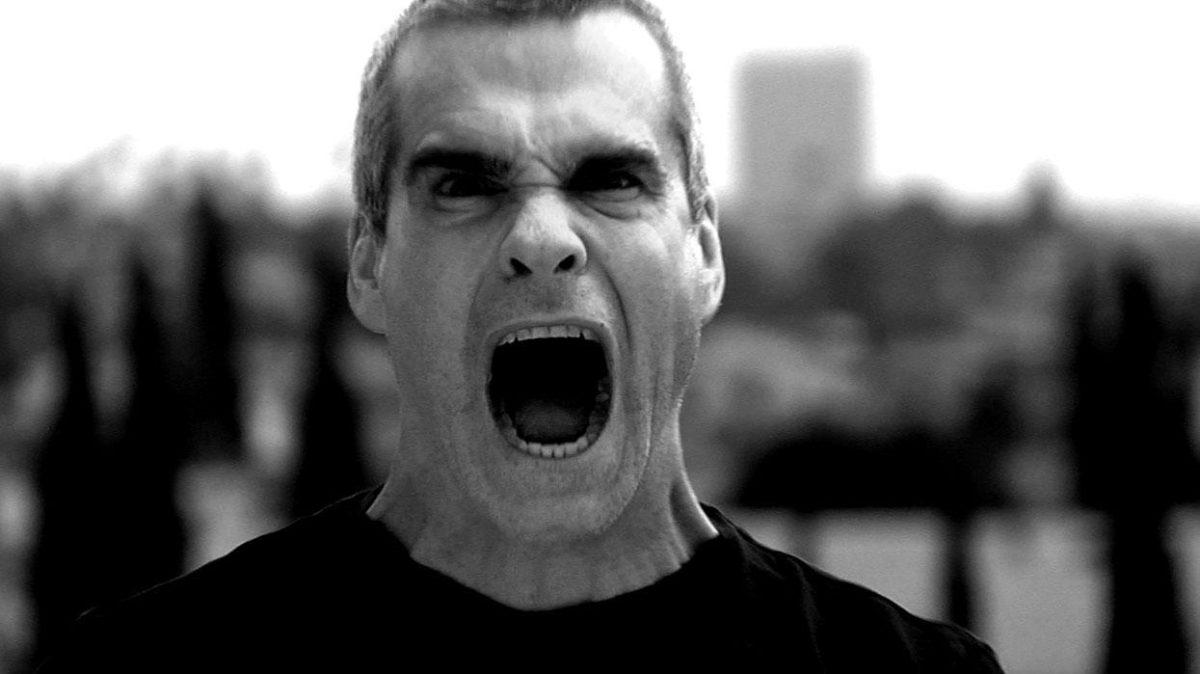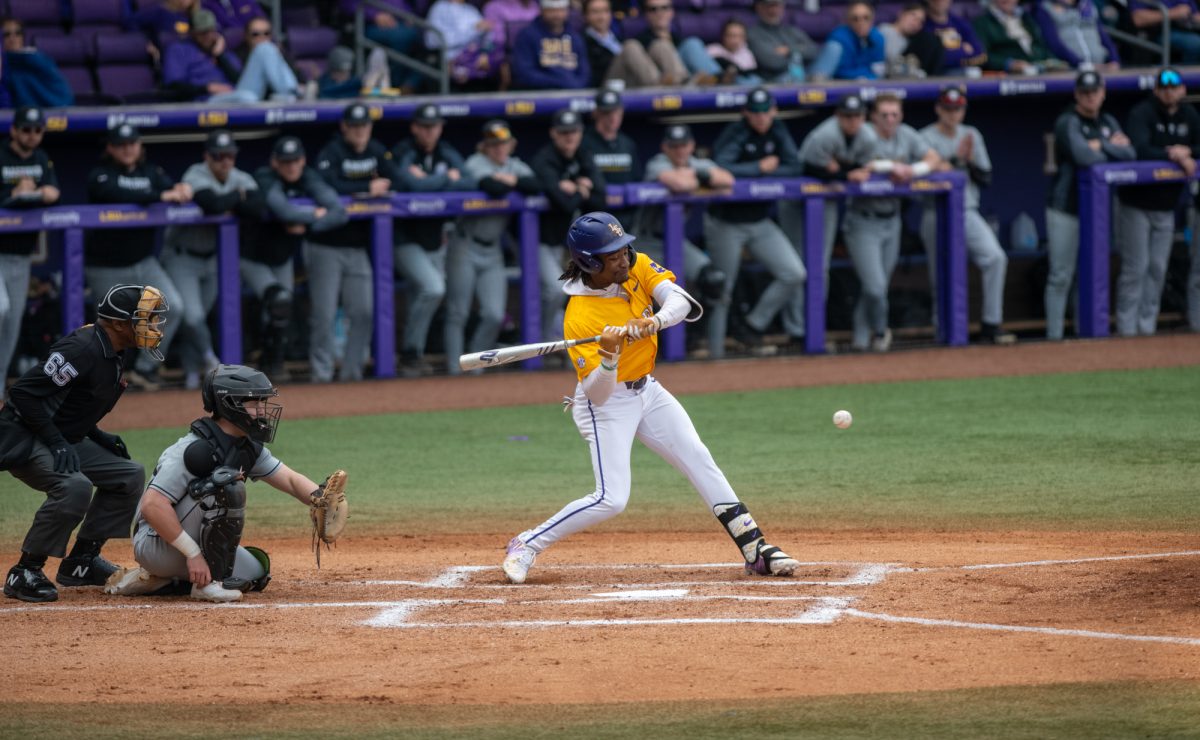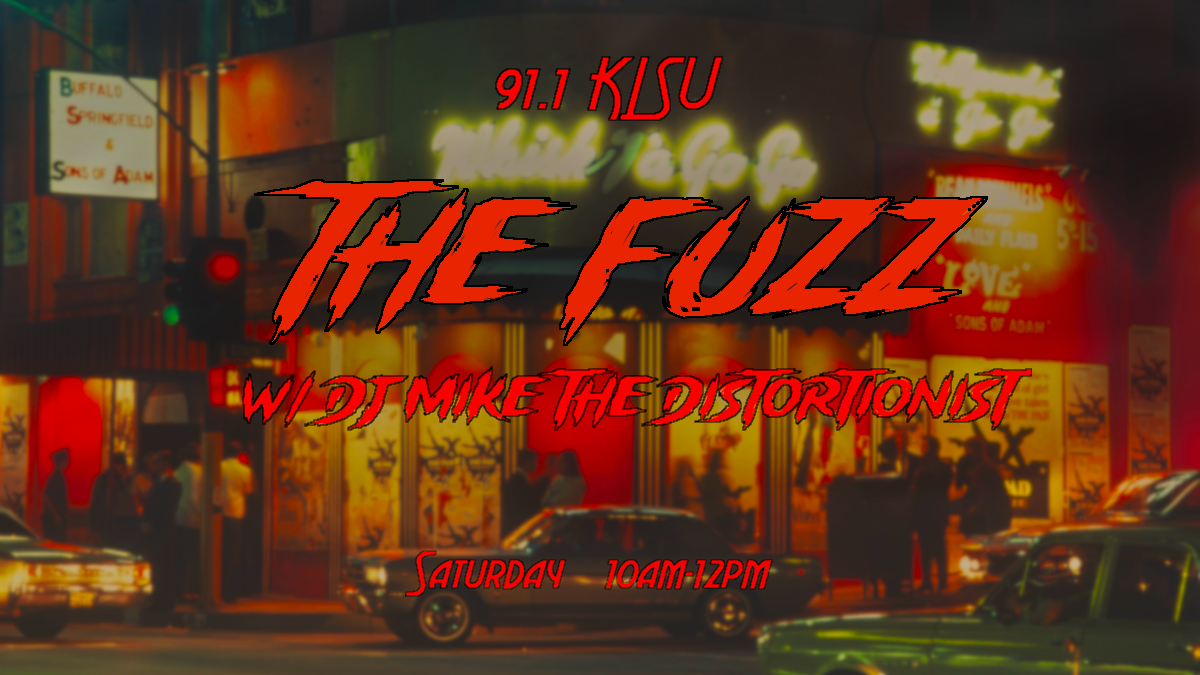Henry Rollins, known primarily as the frontman in former punk-rock band, Black Flag, came to the Manship Theatre on Monday, and talked for three hours. Maybe it was more like two hours and forty five minutes, either way; it was the longest speaking engagement I’ve ever been to. Rollins has been traveling the country (and sometimes world) for thirty years, usually doing around 150 shows, whether they be music or spoken word, per year. I’ve admired Rollins for a long time, first because of his musical background and for his show on IFC which I watched avidly as a teenager.
He didn’t talk about economics much at all, which was surprising because the show was billed as Henry Rollins: Capitalism. To Rollins, Capitalism (as in the title of the tour) signifies that before the election he is visiting every capital city in America and speaking. The tour is set to end on the night before the election in his hometown of Washington, DC.
The show was rousing, interesting, and sometimes hilarious. It was anything but your normal stand-up. I expected a scathing indictment of American politics and economic policy (Rollins is a punk musician after all).
But instead, Rollins spoke about the need for people to vote, to be active as a human being, even if you feel that you don’t agree with either of the parties which dominate American political discourse. He wasn’t telling us who to vote for, but just to vote. In a lot of ways, his talk was a plea with his audience to take action. Not in an activist sense, but in a human sense.
He told the audience about his experiences: as a punk rocker, a spoken word artist; working for National Geographic, answering emails from fans, and helping out in Haiti. He struck an emotional chord with as his message became clear. He stated that he was not afraid of humans, but afraid of high fructose corn syrup, Big Macs, alcohol, and drugs. He is afraid of these things because they allow us to get off easy—to keep ourselves sedated into indifference.
Often when you get to experience performers you have looked up to for years, they come off as larger than life. In the three hours I listened to Rollins speak he became more and more human. He recounted his experiences being a strange and unpopular teen, and the importance of the punk scene as a place he found camaraderie. It was the power of music that spoke to a certain alienated group of people to unify. He then took ideas that occurred to him while being a punk musician and applied them to the world at large, and that is what he is trying to urge his audiences to do–to take our frustration and turn it into something positive.







